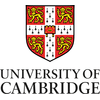The Cambridge-Africa ALBORADA Research Fund was established in 2012, with generous support from The ALBORADA Trust. The Fund supports pairs of researchers (post-doctoral level and above) from the University of Cambridge (or an affiliated institution such as the Wellcome Trust Sanger Institute, NIAB and British Antarctic Survey) and African institutions, across all disciplines, to initiate and/or strengthen research collaborations. To date, 332 awards have been made, to enable Cambridge researchers to engage with African colleagues from 35 African countries. Some awardees have been able to use the preliminary results from their seed fund / research collaboration to apply for and win significant funding (e.g. Royal Society/Leverhulme Awards, Global Challenges Research Fund, etc.).

 Established in 1209, University of Cambridge is a non-profit public higher education institution located in the urban setting of the large town of Cambridge (population range of 50,000-249,999 inhabitants), East of England. Officially accredited and/or recognized by the Privy Council, University of Cambridge is a large (uniRank enrollment range: 15,000-19,999 students) coeducational higher education institution. University of Cambridge offers courses and programs leading to officially recognized higher education degrees such as bachelor degrees, master degrees, doctorate degrees in several areas of study. See the uniRank degree levels and areas of study matrix below for further details. This 810 years old higher-education institution has a selective admission policy based on entrance examinations and students' past academic record and grades. The admission rate range is 10-20% making this UK higher education organization a most selective institution. International applicants are eligible to apply for enrollment.
Established in 1209, University of Cambridge is a non-profit public higher education institution located in the urban setting of the large town of Cambridge (population range of 50,000-249,999 inhabitants), East of England. Officially accredited and/or recognized by the Privy Council, University of Cambridge is a large (uniRank enrollment range: 15,000-19,999 students) coeducational higher education institution. University of Cambridge offers courses and programs leading to officially recognized higher education degrees such as bachelor degrees, master degrees, doctorate degrees in several areas of study. See the uniRank degree levels and areas of study matrix below for further details. This 810 years old higher-education institution has a selective admission policy based on entrance examinations and students' past academic record and grades. The admission rate range is 10-20% making this UK higher education organization a most selective institution. International applicants are eligible to apply for enrollment.
